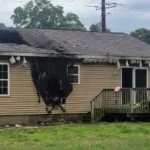To access the Herald’s local coronavirus/COVID-19 coverage, click here.
COURT HOUSE – It has been eight months of taking protective measures, avoiding unprotected gatherings, and sitting at home for prolonged periods.
Whether driven by state restrictions that closed bars, restaurants, and other gatherings and entertainment venues, or a reluctance to risk infection, as these venues began partial reopenings, many people have now begun to venture to indoor settings to have dinner, meet with friends, or enjoy a cocktail without having it in a sealed takeout container.
What happens if that restaurant finds it has a staff member who tests positive for COVID-19? Would patrons know about it? Is anyone obligated to tell them? Must the restaurant post some public notice? Does the establishment have to close?
These are questions people are asking, as COVID-19 case counts continue to grow.
When asked these questions, the Cape May County Health Department said that a restaurant or bar must close immediately “in the event of a presumptive or actual positive COVID-19 case of a worker, patron or vendor.”
State and Centers for Disease Control and Prevention (CDC) guidelines explain the cleaning and sanitization protocols that must take place before the establishment can reopen.
There is no requirement for a restaurant, bar, or other venue to make an announcement if an employee tests positive. Health officials investigating the case will notify other employees and close contacts of the infected individual while maintaining confidentiality.
The Health Department would also set guidelines for when the employee can return to work. Health officials would also monitor other employees’ test results.
The restaurant or bar is not required to notify patrons or the public via a public notice, but most do so as a matter of good business practice.
Fins Bar and Grille, in Cape May, posted a notice on its Facebook page Nov. 2 that a staff member tested positive. The restaurant closed immediately and “followed protocols for employee testing and restaurant sanitation.” Finns reopened Nov. 7, according to an announcement on social media.
Similarly, Exit Zero Filling Station closed at 6 p.m. Nov. 4, following an announcement of an employee who tested positive. Social media was used to inform patrons and the public. After following state and CDC protocols, the establishment reopened Nov. 6.
Both restaurants made public announcements, even though they were not required to do so.
Restaurants and bars have been hit especially hard by the restrictions that followed the appearance of the pandemic in the county.
Many had to make do with takeout and delivery options until state and local authorities eased limitations on liquor service, table positions, use of the public right of ways, and a myriad of requirements that produced a summer of outside dining.
Limited capacity indoor dining followed, but that was recently further restricted by new state regulations requiring establishments to close by 10 p.m. and eliminating “bar seating.”
At his news briefing Nov. 9, Murphy said that gatherings in homes may be a bigger danger for spreading the virus, but “it’s very hard to get inside somebody’s house.”
The crackdown on restaurants and bars after 10 p.m. is, Murphy admits, a step that can be “realistically enforced.” He defended it as fact-based but admitted it was a restriction he could impose, where restricting small, indoor gatherings in homes was not.
Restaurants have taken heat because they can be studied. One study this past week in Nature used mobility data to project that restaurants at full capacity led to “the largest increase in infections,” while capacity limits incrementally reduced the risk.
A German study based on contact tracing data concluded that restaurants were not a primary source of infection.
To contact Vince Conti, email vconti@cmcherald.com.








